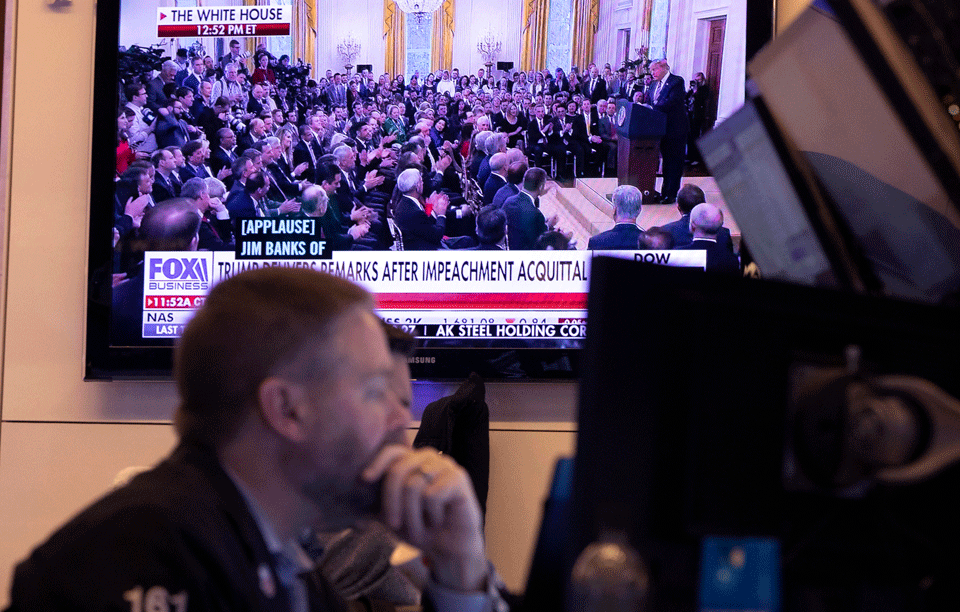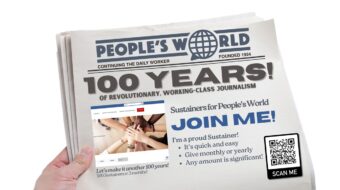
Whoever controls the media, controls the people. And whoever controls the people, controls the future.
Probably the most well-known—and scientific—book on media bias is Manufacturing Consent by Noam Chomsky and Edward Herman. The authors describe the mass media’s uncritical “reporting” on the federal government, specifically regarding foreign policy. These institutions—The New York Times, CNN, FOX News, and their cohorts—are obsequious to their corporate owners and the moneyed interests they represent.
The apparent liberal and conservative biases in the media play out on this very limited scale: There is an acceptable room for debate, and beyond that is unapproachable. In light of Chomsky’s “propaganda model” of the mass media—and as liberals and conservatives alike complain of bias in their opponents’ reporting—I’d like to propose another, far more pernicious bias: Neoliberalism.
In essence, neoliberalism is the free market unrestrained by social-democratic measures. On the global scale, it means the domination of giant multinational corporations. But more than an economic system, it’s also a political and cultural system, ushered in by Reagan and Thatcher, and accepted now as the basis for all political debate. It is monopoly capital run wild, demonstrated perfectly by the six companies (check ’em out!) that control almost all of the media.
And so, neoliberal capitalism is presented as the obviously best way to run a functional society—in fact, the only way to do so. The term “neoliberalism” or any of its derivatives is never mentioned; for the most part, neither is “capitalism.” That makes the propaganda all the more effective: People aren’t being openly told to support a certain system, but they are continually being sold that system’s narrative.
Media companies have an agenda. Nor is it merely their own agenda, but that of the class they represent: elite, wealthy business owners who have everything to gain from an unfettered free market and an unquestioning populace. Because if we assume that neoliberalism is the only legitimate system—even, and especially, if we don’t have the words to describe that belief—we will only seek change within that system.
In addition to being radically different economic systems, socialism and capitalism are two divergent ways of viewing the world. Capitalism sees the current order as necessary; socialism sees it as unjust. Capitalists believe that market forces can effectively control everything; socialists know they cannot. Everyone should legitimately consider both of these systems and decide which stands up better against the mirror of economic reality, but it is impossible to do that fairly when one system is constantly presented as the only legitimate way to view the world.
And what a bleak outlook it is! Neoliberalism sees the current situation and its miserable ends as inevitable. Of course, the United States must spend countless billions on its military. Of course, some people suffer, but there’s nothing we can do about it; it’s just the way of the world. Or as Margaret Thatcher used to say, “TINA”: There Is No Alternative.
That’s a lie. It’s a huge lie, and it’s repeated constantly, though often veiled.
The truth, of course, is that people are suffering for a reason: because those very market forces that neoliberalism worships result in the privatization of basic services and destruction of resources that makes them unavailable to people who desperately need them. And this is very intentional: It lines the pockets of the rich elite who control the multinationals. There is certainly something that can be done about this—we can change the economic system that creates such injustices! Through the lens of neoliberal capitalism, however, such revolutionary change is not just undesirable but impossible.
Consider the existential threat of climate change. If we do not act within the next decade, the damage to the planet will be irreparable. The liberal media generally acknowledges this but does not mention how this destruction came about. Oil companies like Exxon and Shell have known about the devastating environmental impacts of their work for decades but hid that information from the public. Now we are told to take individual action against this collective threat, an impossible task when 100 companies are responsible for 71 percent of global emissions. And why did these companies continue destroying the environment even while being aware of their effects? Quite simply: Profit.
Yet the profit motive is never mentioned. And so, neither is the possibility of changing it. This presents an incredibly bleak future: Another decade of environmental destruction will doom us to live with its effects forever. That’s not the only option, but it’s the only one that is presented.
If one believes the lies of neoliberalism, one might feel that world events are merely fate. There are no actors but just a sequence of occurrences coming from nowhere, cause unknown and thus unable to be cured or prevented. And that’s just sad, especially if there’s nothing to be done about it.
Of course, as we have seen, terrible events such as war and climate change are not accidents or fate but are deliberately planned to maximize profits. (Consider how the United States’ endless wars in the Middle East benefit military technology companies like Lockheed Martin.) And if they are deliberately planned, they can be deliberately changed.
At the beginning of this article, I stated that whoever controls the media controls the people. Perhaps more accurately, whoever controls people’s perception of the world has power over them. So when people divorce themselves from the neoliberal ideology of the mass media, they’re also freeing themselves from the control of those who own and profit off the mass media.
None of us has all the answers to the problems created by free-market capitalism run rampant. I think that’s the point, though: When people start genuinely talking to each other rather than accepting someone else’s answers, real change can happen.
Many people are uncomfortable with the direction society is going or feel alienated from it. One of the first steps toward change is solidarity. To develop a new outlook on the world, we need to talk with each other. Focusing on the collective struggle rather than the depressing fate presented by the official narrative is key to our success in overcoming the latter.
Revolution is the opposite of passively accepting one’s destiny; it occurs when the people rise up to take their fate and their future into their own hands. It is useless to listen to the voices that tell us it is impossible; everything seems impossible until it happens, and then it seems inevitable.
The mass media’s grip on people’s minds and political ideologies is fierce, so we have to put up an even more fierce resistance. The solution to bad media is not no media; it’s a genuine revolutionary media that focuses on truth and how it affects the working people, and what we can do about it.
There are quite a few brilliant leftist media outlets. I’d suggest that to detox oneself from the neoliberal mass media, an immersion in factual leftist media is imperative. But even then, we should be wary of passively accepting other people’s opinions: We must hold each idea up and compare it with the truth. When the people, the working masses ourselves, control our own narrative of the world, we will be the ones to shape our future.
This article, like all op-eds published by People’s World, reflects the opinions of the author.











Comments